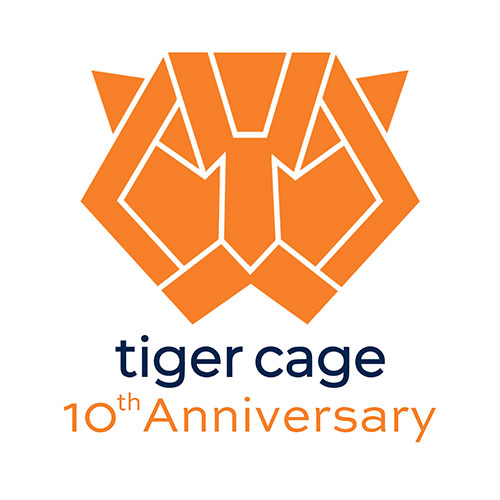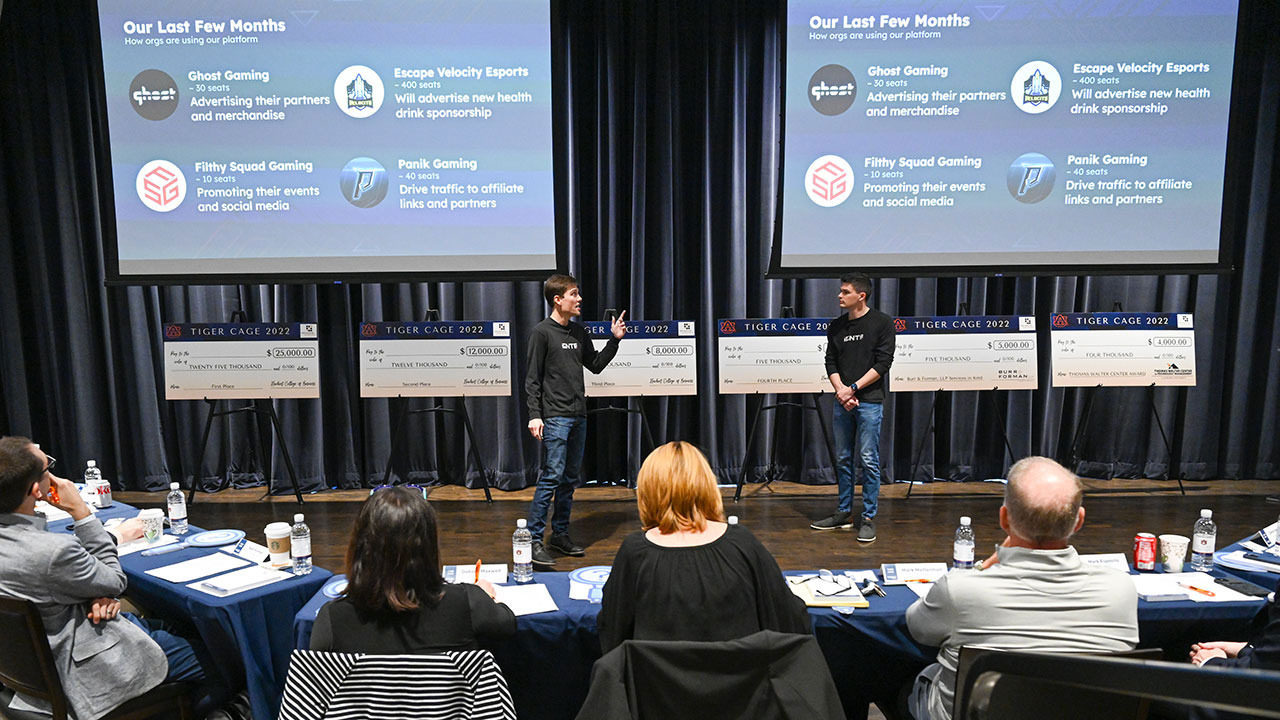Sixteen Auburn Engineering students to compete in Feb. 23 Tiger Cage semifinals
Published: Feb 14, 2024 9:00 AM
By Joe McAdory
Sixteen Auburn Engineering students across five teams will make pitches to industry professional judges on Feb. 23 in the Tiger Cage Student Business Idea Competition semifinals.
Teams representing Auburn Engineering are:
-
-
-
- Dream EV (Mayur Basu, Patrick Haney and Mohammed Rayyan Husain, all from electrical and computer engineering): Revolutionizing the electric vehicle (EV) charging landscape with its visionary concept of mobile EV chargers. These chargers aim to eliminate the concern of range anxiety among EV owners by providing on-demand charging at convenient locations. The user-friendly mobile application allows drivers to schedule the charger to meet them at specific destinations or strategic points along their routes, transforming EV charging into a seamless part of their daily routines.

- Early Bird (Thomas Lester, industrial and systems engineering): A groundbreaking product with a user-friendly side-mounted push-point that activates rapid interior heating. It is a single-use canned beverage (coffee, tea, or hot chocolate) that heats faster than a Keurig and is more affordable than a coffee shop. Through extensive prototyping, the sixth iteration prototype demonstrated that the beverage could reach 170 degrees within minutes, all while the can's insulating coating prevents burns.
- ROME (Alex Washburn, Jordan Snyder, Emily Glaze, Maddy McCutchin and Maddie Robison, all from industrial and systems engineering): Roller to Optimize Material Efficiency (ROME) is an innovative solution addressing the labor-intensive and physically tolling task of laying materials in diverse industries. The flagship product, the CowPaw, is an ergonomic device designed to streamline laying paper in poultry farms. The problem is prevalent in poultry farming, where manually laying paper along feed and water lines is a time-consuming and physically demanding task.
- AbGlo (Holli Michaels, engineering management/product innovation) and Courtney Montague (computer science and software engineering): A fitness device that corrects lumbar position during core strength exercises — empowering trainers and healthcare professionals to monitor subjects through visual and sensory feedback. AbGlo won the 2023 Auburn University Halloween Pitch Competition.
- The Digital Athlete (David Hollinger, industrial and systems engineering, David Edmondson and Avinash Baskaran, mechanical engineering, Qi Li and Muhammed Gulfam, computer science and software engineering: A data-driven solution to provide users with objective information of their movements. Athletes can upload a short video or wearable data of their activity to the ChatGPT-like model, such as RunGPT, which analyzes their biomechanics and provides feedback on movement quality, exercise recommendations, and footwear recommendations personalized to the athlete’s movement signature.
Seven other non-engineering teams (Elixa Industries, Empowering Electric Mobility, Focus Friends, Mammoth Super Sod, Menu Match and Patella Protector) representing a variety of colleges within the university, including business, liberal arts and human sciences, also qualified for the semifinals, which will be held inside Horton-Hardgrave Hall’s Broadway Event and Space Theater.
In the Tiger Cage’s 10th rendition, teams selected for the March 29 final round will compete for $80,000 in startup capital, with $25,000 going to the overall winner. Last spring, Parvin Fathi-Hafshejani, a graduate student in electrical and computer engineering, won the Tiger Cage and eventually finished in third place at the SEC Pitch Competition on Oct. 23, 2023, in Athens, Georgia.
Presented by the New Venture Accelerator and Harbert College of Business, Tiger Cage provides months of coaching and mentoring to students on how to develop business plans, evolving those plans and pitching ideas before judges or potential investors.
“Every year we see greater diversity in the range of startup ideas and improvements in the quality of the student-led presentations,” said Lou Bifano, director of Auburn University’s New Venture Accelerator. “This year, the 10th anniversary of the Tiger Cage Student Business Idea Competition, we had the highest number of teams participating, the highest level of participation among female students, and the most schools and colleges represented. Interest in all things entrepreneurship across the Auburn University campus is exploding.”
-
-

In the Tiger Cage’s 10th rendition, teams selected for the March 29 final round will compete for $80,000 in startup capital, with $25,000 going to the overall winner.

